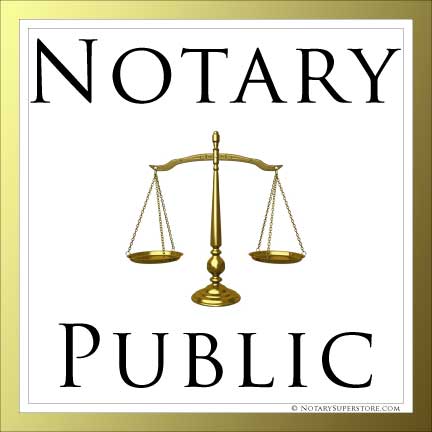Debunking Notarial Job: Streamlining the Function and Value of Notaries
Their function, usually shrouded in mystery for many, carries significant weight in making certain the validity and honesty of crucial files. By deciphering the complexities surrounding notarial techniques and losing light on the value of their acts, a clearer understanding emerges of the vital role notaries play in upholding the material of lawful and legal agreements.
The Background of Notarial Work
The background of notarial work dates back to ancient worlds, where scribes played an important duty in tape-recording important information and verifying papers. This led to the advancement of notaries, people assigned by the state to act as unbiased witnesses in legal matters.
Throughout the Center Ages, notaries gained prestige in Europe, with their functions broadening to consist of drafting legal records, certifying trademarks, and maintaining documents. The rise of worldwide trade additionally highlighted the value of notarial job in validating contracts and contracts throughout boundaries.
In the modern-day period, notaries remain to play a crucial function in lawful and service deals by confirming identifications, confirming the credibility of papers, and protecting against fraudulence. Their role in certifying the legitimacy of arrangements includes a layer of security and depend the ever-evolving landscape of business and regulation.

Responsibilities and Duties of Notaries
Notaries play an essential function in validating the authenticity of records and the identity of notaries. One of their key obligations is to witness the finalizing of essential records, such as wills, deeds, and agreements, to guarantee that all events are entering into contracts purposefully and willingly.
They accredit duplicates of initial papers, offering guarantee to establishments that the duplicates are real reproductions of the originals. On the whole, the obligations and duties of notaries are vital in guarding the integrity and validity of various papers and purchases - Apostille.
Notarial Certificates and Signatures
Exemplifying precise focus to information, notarial certificates and trademarks work as crucial elements in confirming the authenticity of lawful records. Notarial certificates normally contain important information such as the date of registration, the names of the notaries, a summary of the file, and the notary's official seal. These certifications offer a clear record of the notarial act, ensuring that the file can be easily identified and traced back to the notary who oversaw the procedure.
Signatures play a pivotal duty in notarial job, as they symbolize the contract and permission of the celebrations involved. Notaries carefully witness the finalizing of records to verify navigate to this site the identification of the notaries and validate that they are signing of their own complimentary will. By attaching their official seal and trademark to the file, notaries accredit that the necessary treatments have actually been adhered to which the record is enforceable and valid.
Essentially, notarial certifications and trademarks are the characteristic of credibility in legal purchases, giving guarantee to all celebrations involved that the papers are reputable and binding.
Significance of Notarial Acts

Registration Refine Clarified
Discussing the notarization procedure supplies clearness on the necessary actions entailed in validating lawful documents. The registration procedure generally begins with the individual presenting the paper Visit This Link to a notary public. The notary after that validates the signer's identity via acceptable recognition techniques. When the identification is verified, the notary guarantees that the private signing the record does so willingly and without any kind of browbeating.

Conclusion

Notarial certifications typically have essential information such as the day of notarization, the names of the signatories, a description of the record, and the notary's main seal. These certificates offer a clear record of the notarial act, making sure that the file can be conveniently determined and mapped back to the notary who oversaw the procedure.
By affixing their main seal and trademark to the paper, notaries certify that the necessary treatments have actually been adhered to and that the record is enforceable and legitimate.
By validating the additional reading identification of the signatories, validating their willingness to get in right into the contract, and licensing the date and location of the signing, notaries play a critical duty in promoting the legitimacy of lawful records.After the paper is authorized, the notary will attach their main seal or stamp onto the paper.